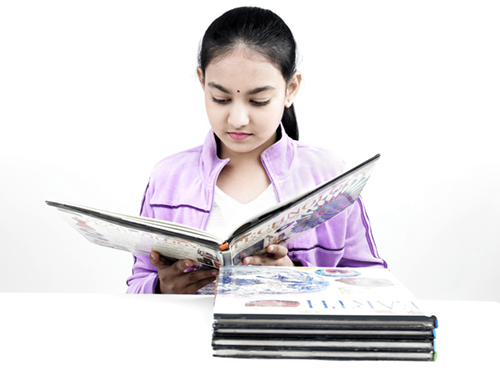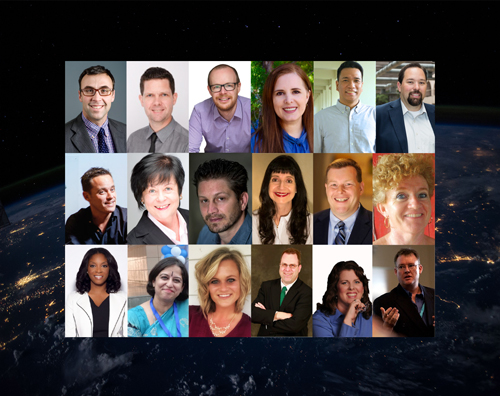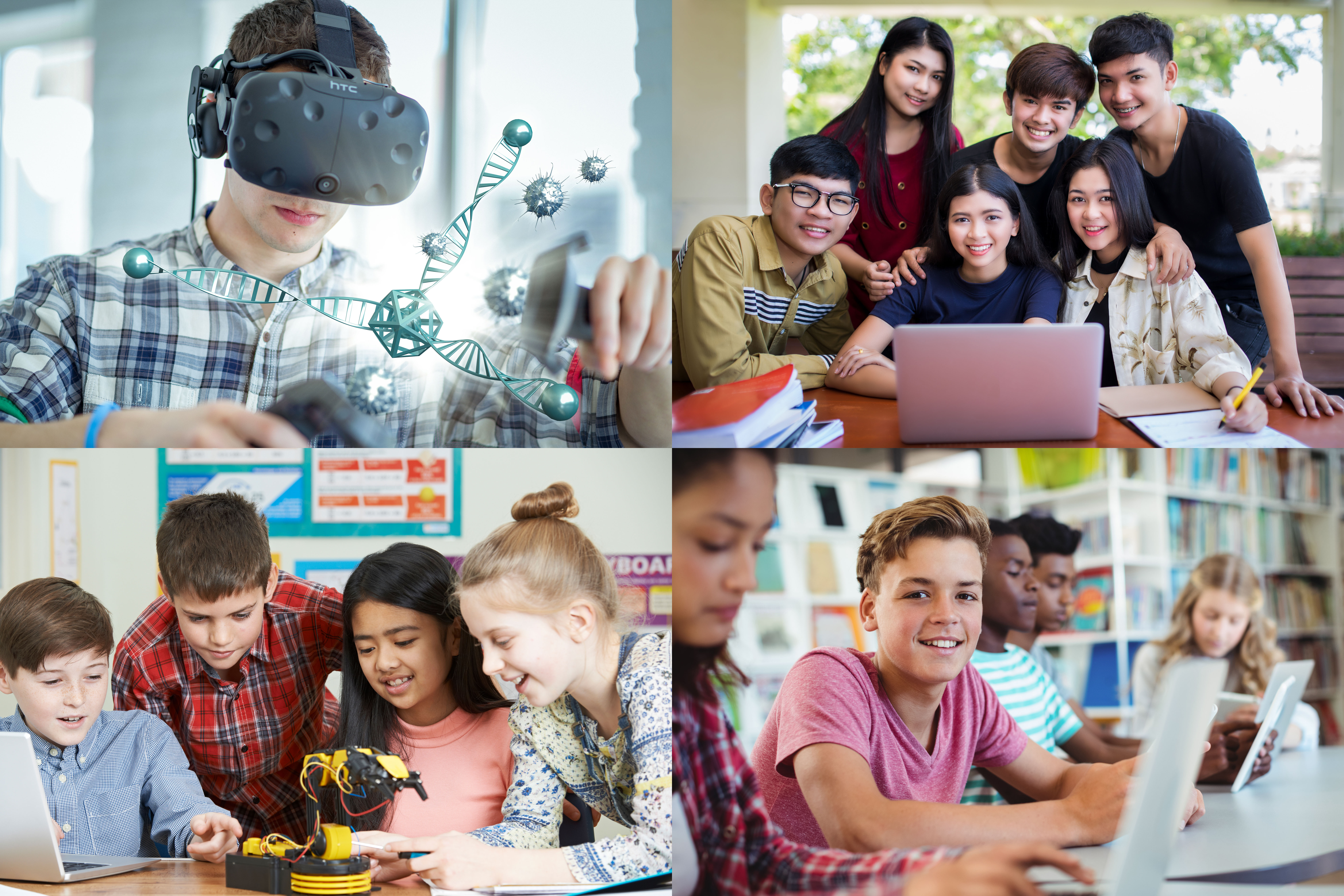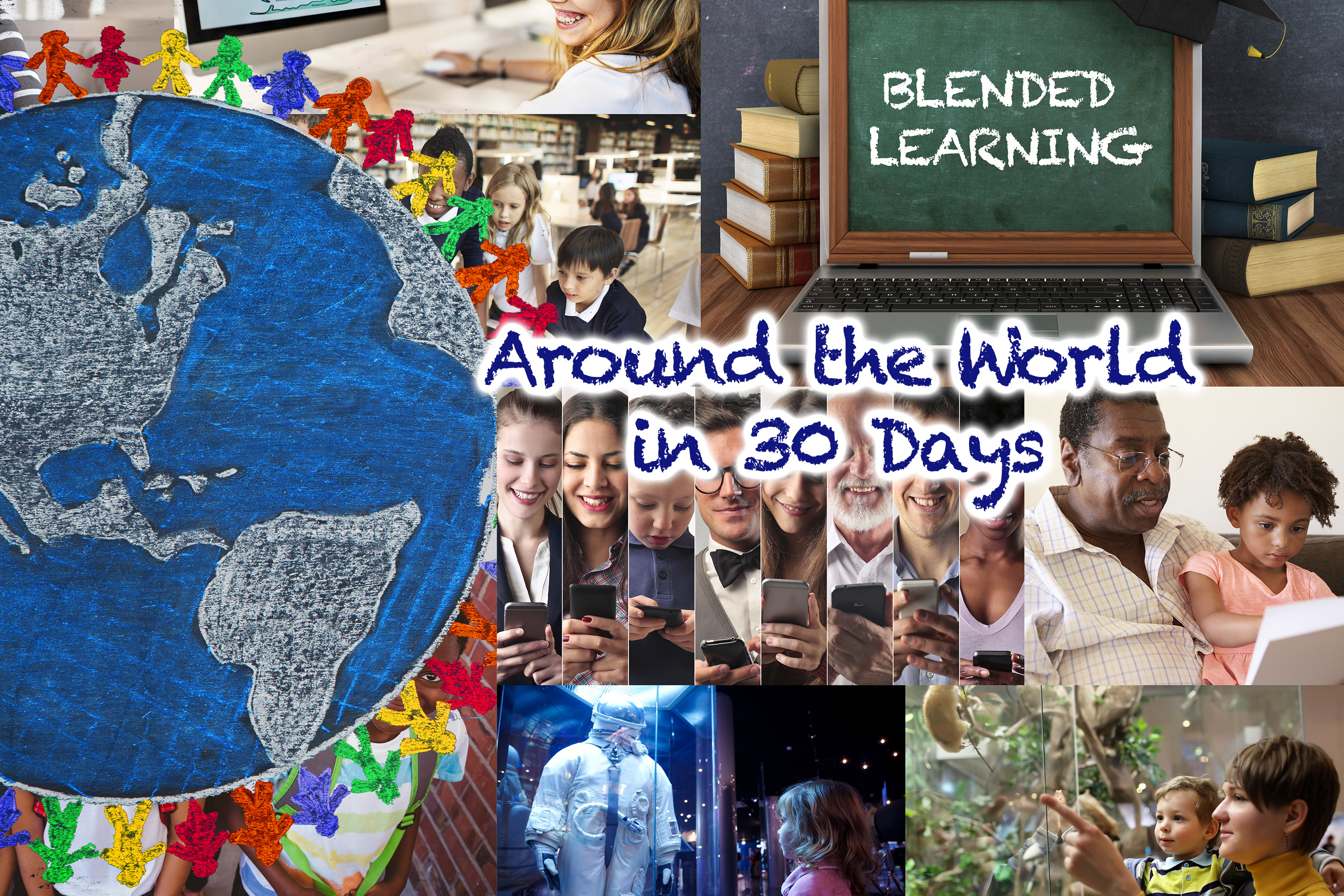Print and pictures on the pages of a textbook, a novel, a poster board, a newspaper or a comic book – once upon a time that was how we consumed stories and other information. Then came the internet. Today, digital natives are both consuming and creating online or on their mobile phones constantly, and the literacy skills needed for an interconnected world have changed. They include the ability to navigate thousands of sources, locate quality information, evaluate fact from fiction, synthesize, and create and communicate perspectives in the appropriate way to diverse audiences.
To what extent are the literacy skills required for a new world more or less the same as they were before? Will new literate practices need to be generated and if so, what are these new literacies and how can they be learned?
This month our top teacher bloggers from around the world weigh in.
“Computational Thinking has now been officially included in many curriculums globally and schools are developing their own frameworks to authentically integrate these skills into their teaching and learning programs,” writes Craig Kemp (@mrkempnz), who encourages educators to adapt and engage with new technologies to add value to student learning. Read More.
The new literacies, writes Vicki Davis (@coolcatteacher), are what “we should already be teaching.” These include “how to conduct civil discourse”, how to “verify information BEFORE sharing it” and how to “correct ourselves when we realize a mistake AFTER we’ve shared something that is untrue.” Read More.
Jim Tuscano (@jimtuscano) says students must be “given the stepping stones to climb up the complexities of deeper learning and making meaning of the world. For those at the lower end of the digital divide, which is a lot bigger than those who can access technology tools adequately, the 3Rs are more than stepping stones. They are equalizers that ensure that everyone has some of the basic core skills needed for learning.” Read More.
If you want life-long learners, then you need life-long readers. It is that simple, writes Elisa Guerra Cruz (@ElisaGuerraCruz). “I believe that our education systems are teaching our kids too little, too late and too badly – at least regarding early literacy instruction.” Read More.
“As an English teacher I showed my ESL students (12 – 13 years) a list of abbreviations and acronyms generally used in text messaging and surprisingly they knew most of them,” writes Maarit Rossi (@pathstomath). Maarit believes the more important question is how to engage the young people in the exciting world of books. Read More.
Misinformation in the age of AI is a major challenge and Shaelynn Farnsworth (@shfarnsworth) writes, “the checklists we once used to verify information have a hard time exposing the fake news, half-truths, media-bias, propaganda, fallacies… that we consume on a daily basis.” She recommends educators check out the work of Michael Caufield. Read More.
A focus on the job market alone is the wrong focus, writes Michael Soskil (@msoskil), who advocates for “the old literacies and the new.” Some of the newer literacies he concentrates on this month are Global Literacy, Emotional Literacy and Informational Literacy. Read More.
“When we think about the way forward to the literacy skills our children need for the Fourth Industrial Revolution and the future, we still strongly believe that whether the means of communications be social media, books, telecommunications, digital media or other, the heart of how we form ideas and pass them on is still language,” writes Miriam Mason (@EducAidSL). “Command of the written and spoken word will still be what people need.” Read More.
Ngô Thành Nam (@mrnamvas) writes that children should choose “any form of reading that fits the type of intelligence they have as long as their literacy skills are developed.” Both “teachers and parents should be aware of a learner’s needs “in order to help children develop their reading and writing skills.” Read More.
Top Row L to R: Armand Doucet, Craig Kemp, Richard Wells, Elisa Guerra Cruz, Jim Tuscano, Carl Hooker
Middle Row L to R: Jelmer Evers, Maarit Rossi, Koen Timmers, C.M. Rubin, Michael Soskil, Miriam Mason-Sesay
Bottom Row L to R: Nadia Lopez, Rashmi Kathuria, Shaelynn Fransworth, Adam Steiner, Vicki Davis, Warren Sparrow
Join me and globally renowned thought leaders including Sir Michael Barber (UK), Dr. Michael Block (U.S.), Dr. Leon Botstein (U.S.), Professor Clay Christensen (U.S.), Dr. Linda Darling-Hammond (U.S.), Dr. MadhavChavan (India), Charles Fadel (U.S.), Professor Michael Fullan (Canada), Professor Howard Gardner (U.S.), Professor Andy Hargreaves (U.S.), Professor Yvonne Hellman (The Netherlands), Professor Kristin Helstad (Norway), Jean Hendrickson (U.S.), Professor Rose Hipkins (New Zealand), Professor Cornelia Hoogland (Canada), Honourable Jeff Johnson (Canada), Mme. Chantal Kaufmann (Belgium), Dr. EijaKauppinen (Finland), State Secretary TapioKosunen (Finland), Professor Dominique Lafontaine (Belgium), Professor Hugh Lauder (UK), Lord Ken Macdonald (UK), Professor Geoff Masters (Australia), Professor Barry McGaw (Australia), Shiv Nadar (India), Professor R. Natarajan (India), Dr. Pak Tee Ng (Singapore), Dr. Denise Pope (US), Sridhar Rajagopalan (India), Dr. Diane Ravitch (U.S.), Richard Wilson Riley (U.S.), Sir Ken Robinson (UK), Professor Pasi Sahlberg (Finland), Professor Manabu Sato (Japan), Andreas Schleicher (PISA, OECD), Dr. Anthony Seldon (UK), Dr. David Shaffer (U.S.), Dr. Kirsten Sivesind (Norway), Chancellor Stephen Spahn (U.S.), Yves Theze (LyceeFrancais U.S.), Professor Charles Ungerleider (Canada), Professor Tony Wagner (U.S.), Sir David Watson (UK), Professor Dylan Wiliam (UK), Dr. Mark Wormald (UK), Professor Theo Wubbels (The Netherlands), Professor Michael Young (UK), and Professor Minxuan Zhang (China) as they explore the big picture education questions that all nations face today.
The Global Search for Education Community Page
C. M. Rubin is the author of two widely read online series for which she received a 2011 Upton Sinclair award, “The Global Search for Education” and “How Will We Read?” She is also the author of three bestselling books, including The Real Alice in Wonderland, is the publisher of CMRubinWorld and is a Disruptor Foundation Fellow.
Follow C. M. Rubin on Twitter: www.twitter.com/@cmrubinworld







Recent Comments